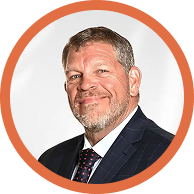How often have you sat in the doctor’s office with an ailment that you don’t mention?
Going to the doctor and not telling the truth is not only counterproductive but can be quite dangerous. The same is true with your financial advisor — many aspects of the financial world impact other areas of your life. Financial decisions not shared with your advisor could negatively impact your current financial journey.
This article covers four things you will wish you told your advisor (or still can!), undisclosed assets, issues with children or the spouse, health concerns, and debt – especially debt hidden from a spouse!
Coming Clean with your Advisor About Other Assets
Owning undisclosed assets is the first item on our list of things people often do not disclose to their financial advisor. This not in your best interest. When I started in the financial services industry in 1987, information was not readily accessible to everyone. Today it is, but the difference is in wisdom and application.
The idea of owning multiple mutual funds divided by size (large-cap, mid-cap, and small-cap) and style (growth, blend, or value) seemed to make sense on paper until it didn’t. During a presentation in January of 2000, we demonstrated how Microsoft, the world’s largest company by market capitalization at the time, was owned by mutual funds in each of the nine size and style boxes. Again, the information was readily available. The managers of the funds didn’t want to sell “Ole’ Softy” so they justified holding it in small-cap value funds. How can the largest company in the world be in a small-cap fund (let alone value style!) when it was clearly a growth company? The financial services industry calls this style drift and is an example of something you can’t control within your portfolio when using these types of funds.
When you own multiple mutual funds, you have a good chance of owning the same stocks in numerous places. This is why our firm, Financial Enhancement Group, chooses to use exchange-traded funds (ETFs) and individual equities within our investment models. If you chose to use more than one advisor, make sure all parties involved know the entire picture. It will save you money, time and heartburn over the years.
Coming Clean With Your Advisor, Your Children, Their Spouses, and Your Grandchildren
Some say telling only part of the story is a little white lie while others find it to be standard protocol. Point: little white lies lead to financial devastation; this includes white lies about your children, their spouses, and your grandchildren.
As you start the legacy process and think of what you’re leaving behind to your children, always remember this does include their spouses. In our experience, we see three types of beneficiary recipients, those that treat resources as you would have; those that spend differently than you would have; and the worst case, those that have bad habits, maybe even ones that you accidentally enabled.
Let’s skip to scenario two, your heirs spending differently than you. Maybe your children are overly charitable or can be easily taken advantage of. This situation calls for a tactical strategy, protecting your children from others more than themselves. Legal trusts can address this issue and probably should be addressed for those prone to naturally helping others or gullible.
Protecting assets from marital property is difficult. There are never guarantees that assets are protected in the event of a divorce, but proper transfer documents can help. For instance, in my passing, my daughters will receive assets over ten years, giving them both three chances to make mistakes.
The saddest case often includes various forms of addiction. How do you leave money behind to children that are not making responsible decisions? This requires a plan and legal documents that go beyond the normal scope. Our trustees have the power to suspend payments to our children if they feel that the misconduct is detrimental to their well being.
The key is that many issues can be handled with the proper legal documents. Remember to be upfront, honest and clear with your Financial Advisor and Real Estate Attorney.
Coming Clean With Your Advisor About Health Issues
The third topic that people tend to keep from their advisors is health concerns. Our health concerns are very private and personal issues, and we sometimes even avoid our doctor because we don’t want to share or hear the news.
Retirement planning is built on assumptions, often too many for my liking. It is necessary to have an inkling of what you will need to sustain your standard of living. There are assumptions over rates of return, inflation, taxation, and of course, life expectancy. Understanding your gene pool and your health situation is vital in making those long-term assumptions.
Recognize that things change. You could be in an accident, your spouse could wind up in bad health, or you could simply have a rare disease come into your life. Any of these situations and many more could impact your life span. We can’t accurately forecast the next 30 years of market behavior or health issues. What we can construct is an action plan for you based on logical assumptions that can be adjusted as necessary.
Issues that may not appear to be connected but clearly are intertwined like your health can change your financial condition. You must share with your advisors if you want appropriate recommendations.
Coming Clean With Your Advisor: Part Four, Debt
It can be hard to admit a mistake or a problem to others, especially if you feel bad about your choice or believe you will face judgment. Embarrassment, regret, and a host of other emotions can spur decisions at the moment that we want to forget about in the future. Debt is one such monster. This is the last of a four-part series of things that you shouldn’t hide from your financial advisor. Don’t make another bad choice today by hiding a condition that would impact proper guidance for your future.
Not all debt is evil, and some debt is justified. Debt is often known as leverage in the financial world. You are using future income to finance something today.
Emergencies can sometimes lead to debt, and not all of us have the money saved in our emergency fund to cover the cost. We knowingly or not, usually classify things into two primary categories: Urgent and Important. Urgent is the disconnect notice or eviction notice that has to be paid now. Important is the emergency fund to take care of surprises. The urgent usually wins over the important, and when the two collide, bad things happen, like unplanned debt. The most notorious debt we see comes from medical emergencies and health issues. Sometimes there just isn’t enough money to cover the cost of all the medical bills.
The most difficult situations we have to often deal with is the denial of debt or “hidden” debt. Hidden debt is just as it sounds: Debt hidden from the other spouse, examples might include gambling, shopping, other relationships, and even helping the kids against the will of their partner. Some of this debt is tied directly to credit cards. Once you pull out the magic plastic card, for whatever reason, you are providing today by borrowing from your future. For many families, this is the beginning of a long term battle with robbing Peter to pay Paul. This type of debt can often lead to emotions of shame that make it hard to admit.
Working with a financial advisor requires honesty if you want accurate recommendations. Keep track of your credit report and be open with your partner, financial counselor and other trusted advisors such as your Real Estate Attorney. Remember the four things to share with your financial planner include other assets, your children & grandchildren, health issues, and debt. Should you have questions about your financial journey, please contact the Financial Enhancement Group.
Disclaimer: Do not construe anything written in this post or this blog in its entirety as a recommendation, research, or an offer to buy or sell any securities. Everything in this post is meant for educational and entertainment purposes only. I or my affiliates may hold positions in securities mentioned in the blog. Please see our Disclosure page for the full disclaimer.





